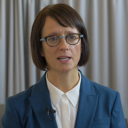The past few months have shown that government can act quickly, innovate and collaborate when required. How do we ensure that it continues to do so when the dust settles?
Across the world, governments have been thrown into crisis management mode in response to the Coronavirus, taking multiple actions to save lives and minimise its damaging impact. The pandemic is cruelly exposing the pressures faced by under-resourced health and social care systems, the vulnerability of those in badly paid, unstable employment, and the impact of housing stress, to name but a few. Societies everywhere will be compelled to reassess what matters most to them and how they can reshape public services for long term good.
The global pace of response to the pandemic has been necessarily fast – in a matter of weeks government authorities at all levels have been making huge decisions that affect the whole population, with fundamental impacts on wellbeing and the economy. New services and systems that would normally take months or years to create are being realised in days and weeks. Health and social care services have been reconfigured and relocated, and the sector’s capacity is being temporarily expanded via rapid introduction of retired and newly qualifying health professionals, and not for profit deals to use hotels and private hospitals. New economic support schemes are being introduced with IT systems and processes rapidly put in place to deliver them. Remote working has been introduced for large numbers of public sector workers and others are being redeployed into high demand areas and emergency operations. This fast-paced response is remarkable and in stark contrast to the often glacial pace with which services are transformed to respond to problems and address need. What’s happening shows that things can be different.
Of course, government bodies are not working alone, the crisis has prompted a high degree of collaboration and extensive goodwill, with all parts of society pulling together to do what they can. The community and voluntary sectors, commercial businesses and academia have brought their specific assets to bear – skills, relationships, infrastructure, and human resources – working individually and in collaboration with each other. This has been exemplified by the agile response of manufacturing businesses who have redeployed their workforces to make the essential personal protective equipment for health and social care workers. Grant making foundations are coordinating the distribution of emergency support funds to community partners. Local community development organisations, sports clubs, churches, and businesses are filling the gaps and working together to provide practical support to vulnerable people.
This urgent, collective response is vital in order to save lives and minimise the immediate effect of the pandemic on the most vulnerable. While we hope the huge effort that this has demanded will only be necessary in the shorter term, what can we do to ensure that the momentum of the global and national action is maintained? When the pressure of the pandemic ends how do we avoid returning to the ‘business as usual’ approach for government? How do we ensure that we bring some of the remarkable energy, innovation, flexibility, leadership, and collaborative working evident in the coronavirus response with us?
We have learned what is possible and know now what can be achieved – we can transform public services at pace, we can work together so that the best of each part of society is brought to bear on the most difficult problems, and we can deploy our skills and resources to where they are needed most. At all costs we must avoid reverting to the status quo.
Angela Hodkinson is an Associate with the Belfast based Social Change Initiative (SCI), which works with donors and activists to ensure that communities become fairer, more inclusive and peaceful.





Comments (0)